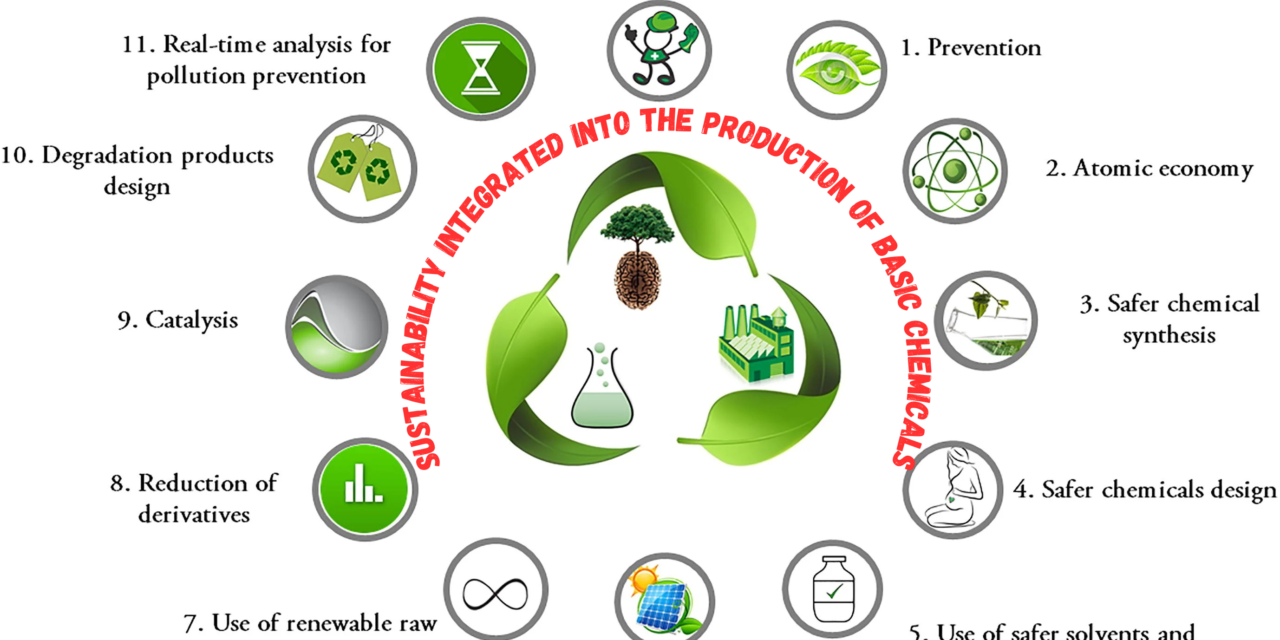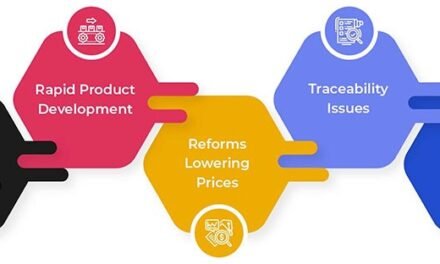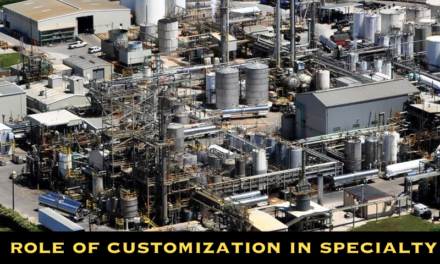Sustainability in the production of basic chemicals is achieved by adopting environmentally friendly practices, optimizing resource use, and reducing emissions. Here are the key approaches:
1. Use of Renewable Feedstocks
- Transitioning from fossil-based raw materials to renewable sources such as biomass, agricultural waste, and CO₂.
2. Energy Efficiency
- Implementing advanced heat recovery systems, process optimization, and the use of renewable energy (e.g., solar, wind) in manufacturing plants.
3. Green Chemistry Principles
- Designing processes that minimize waste and hazardous byproducts while using non-toxic and biodegradable reagents.
4. Circular Economy Practices
- Recycling and reusing byproducts and waste materials from chemical processes to create a closed-loop system.
5. Carbon Capture and Utilization (CCU)
- Capturing CO₂ emissions from industrial processes and converting them into valuable chemicals or fuels.
6. Electrochemical Processes
- Using electricity, particularly from renewable sources, to drive chemical reactions, reducing reliance on traditional heat-based methods.
7. Water Conservation
- Recycling process water and employing advanced treatment technologies to minimize freshwater use.
8. Development of Low-Impact Catalysts
- Using catalysts that enable reactions at lower temperatures and pressures, reducing energy consumption.
9. Waste-to-Chemicals Technologies
- Converting industrial and municipal waste into basic chemicals such as methanol, ammonia, and hydrogen.
10. Process Intensification
- Designing smaller, more efficient production systems that reduce energy, resource usage, and overall environmental footprint.
11. Adherence to Regulations
- Complying with environmental standards like REACH, EPA guidelines, and global sustainability frameworks to ensure responsible production.
12. Life Cycle Assessments (LCA)
- Evaluating the environmental impact of chemicals throughout their lifecycle to identify and reduce hotspots in production.










